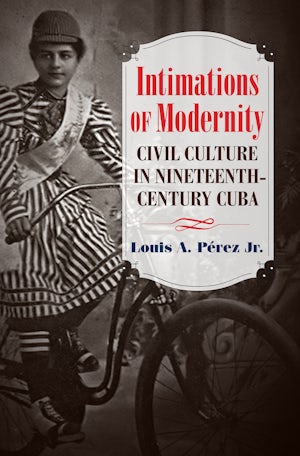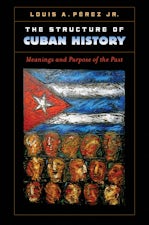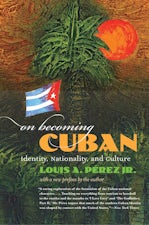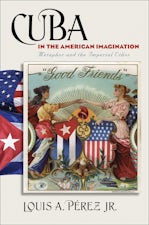Intimations of Modernity
Civil Culture in Nineteenth-Century Cuba
By Louis A. Pérez Jr.
270 pp., 6.125 x 9.25, 24 halftones, 1 table, notes, bibl., index
-
Paperback ISBN: 978-1-4696-5153-8
Published: February 2019 -
Hardcover ISBN: 978-1-4696-3130-1
Published: February 2017 -
E-book EPUB ISBN: 978-1-4696-3131-8
Published: January 2017 -
E-book PDF ISBN: 979-8-8908-5302-8
Published: January 2017
Buy this Book
- Paperback $29.95
- Hardcover $39.95
- E-Book $29.99
For Professors:
Free E-Exam Copies
Pérez highlights women’s centrality in this process, showing how criollas adapted to new modes of self-representation as a means of self-fulfillment. Increasing opportunities for middle-class women’s public presence and social participation was both cause and consequence of expanding consumerism and of women’s challenges to prevailing gender hierarchies. Seemingly simple actions--riding a bicycle, for example, or deploying the abanico, the fan, in different ways--exposed how traditional systems of power and privilege clashed with norms of modernity and progress.
About the Author
Louis A. Pérez Jr. is J. Carlyle Sitterson Professor of History at the University of North Carolina at Chapel Hill. A fellow of the American Academy of Arts and Sciences as well as the Academia de la Historia de Cuba, Pérez is author, most recently, of The Structure of Cuban History: Meanings and Purpose of the Past.
For more information about Louis A. Pérez Jr., visit
the
Author
Page.
Reviews
“Building on decades of archival research and historical expertise, preeminent Cuban historian Pérez fundamentally transforms how scholars think about Cuba's last century under Spanish colonial rule. Highly recommended.”--Choice
“Revealing the ubiquitous change that flowed throughout nineteenth-century Cuba as a result of sugar’s connection to the global capitalism of the time, renowned historian Louis A. Pérez Jr. has written a lively and insightful study of Cuba’s transition to modernity. Intimations of Modernity will appeal to a broad interdisciplinary readership in Cuban, Caribbean, and Latin American studies, as well as in women’s studies.”—Adriana Méndez-Rodenas, University of Iowa
“With Intimations of Modernity, Louis A. Pérez Jr. makes a major contribution to the history of Cuba as well as to the understanding of modernization and social change in the Caribbean. Pérez’s original approach is highlighted by a sophisticated and extremely insightful discussion of the introduction of the handheld folding fan to illustrate the broad-based changes across Cuban society throughout the long nineteenth century.”—Franklin W. Knight, The Johns Hopkins University




